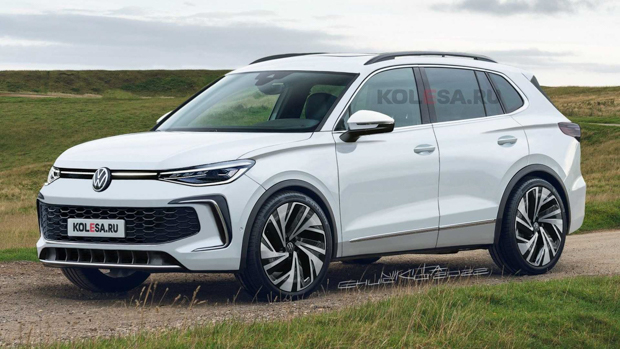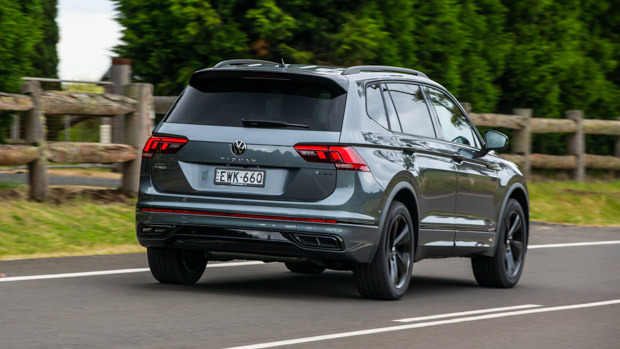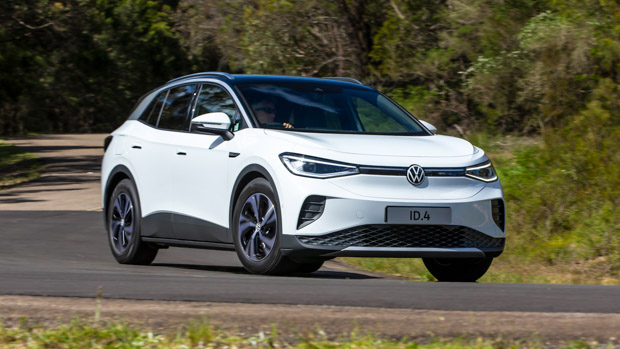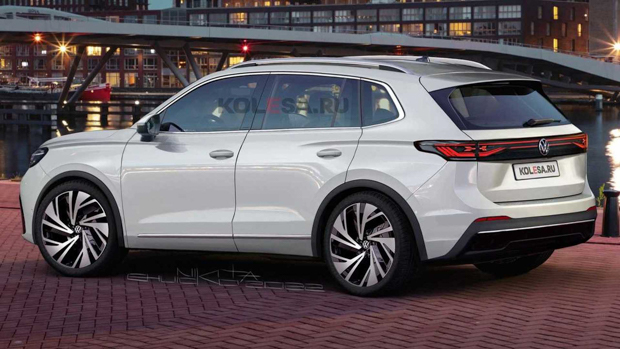-
Car Reviews
- All reviews
- Midsize SUVs
- Small cars
- Utes
- Small SUVs
- Large SUVs
- Large cars
- Sports SUVs
- Sports cars
- Vans
Latest reviews
- Car News
-
Car Comparisons
Latest comparisons
- Chasing Deals
Next-generation Tiguan will be globally revealed in 2023 ahead of a probable 2024 release date, petrol and hybrid engines likely to be locked-in
The third-generation Volkswagen Tiguan will be revealed to the public before the end of 2023, Volkswagen Group chief executive officer Oliver Blume announced this evening.
Speaking to media at the Volkswagen Group’s 2023 annual conference, held this week in Berlin, Germany, Blume detailed each of the major new releases of the Group’s brands for the year.
“In this year, our customers can really look forward to many product highlights,” Blume said. “These include the [facelifted] ID3, the ID7, the long-wheelbase version of the ID Buzz, the Cupra Tavascan, Audi Q8 E-tron, and the new Tiguan as well as the new Passat.”
This marked Volkswagen’s first official confirmation that the Mk 3 Tiguan would indeed be unveiled in 2023, ahead of a possible 2024 release date in Australia.
As the successor to the current-generation Tiguan, the third-generation version will continue as the mainstay of the Volkswagen lineup in Australia. It is likely to arrive locally with a range of petrol and hybrid engines.
In the local range, the third-generation Tiguan will sit alongside the incoming Volkswagen ID4 and ID5 electric SUV models that are similar in size to the Tiguan but are only available with fully-electric powertrains.
The next-generation Tiguan will shift onto Volkswagen’s upgraded MQB Evo transverse platform and is, in some ways, an extensive update of the existing model. Most of its platform and some engines will carry over with key changes.
While it is likely that a non-hybrid engine will continue in Australia, it is possible to Volkswagen will locally adopt mild-hybrid e-TSI engines already seen in Europe, while at least one plug-in hybrid (PHEV) variant is highly likely to launch in Australia.
Later, it is likely that Volkswagen will introduce a fully-electric version of the Tiguan – though this may not come about until a further generational upgrade, such as when the badge moves to the SSP platform that will replace MQB Evo in the second half of the 2020s.
Blume said that the Tiguan had become an “icon” product for Volkswagen, and that it was his expectation that transformation to a fully-electric model would occur in future.
“If you take the Golf or Tiguan, I see huge opportunity to turn that product into an electric variant,” he said.
Customer demand in Australia has been highest for the 162TSI variant of the Tiguan, a 2.0-litre turbocharged petrol four-cylinder engine producing 162kW of power and 350Nm of torque.
In Europe, a PHEV model of the current-generation Tiguan makes similar numbers: 180kW and 400Nm combined with an electric driving range of about 50 kilometres. Look for something similar to arrive with the new-generation verison locally.
The future of diesel engines for the Tiguan is not yet known. The current model still offers 147kW 2.0-litre TDI motor as an option.
As Blume listed, Volkswagen will also remove the covers from the seventh-generation Passat sedan and wagon, as well as the ID7 – a fully-electric large car that will initially take a sedan-like form factor, but an estate car is also likely to be spawned in time.
Chasing Cars understands that Volkswagen Australia has not yet made a decision on whether to bring the next-generation Passat down under, but the next Tiguan is a shoe-in.
In 2022, the two-row Tiguan and three-row Tiguan Allspace models were the most popular line in the Volkswagen Australia range, accounting for 6534 sales between them.
The next-most popular Volkswagen model last year was the T-Cross small SUV, which managed 5146 sales. The Passat, meanwhile, saw 917 Australian deliveries in 2022.
Latest news
About Chasing cars
Chasing Cars reviews are 100% independent.
Because we are powered by Budget Direct Insurance, we don’t receive advertising or sales revenue from car manufacturers.
We’re truly independent – giving you Australia’s best car reviews.



